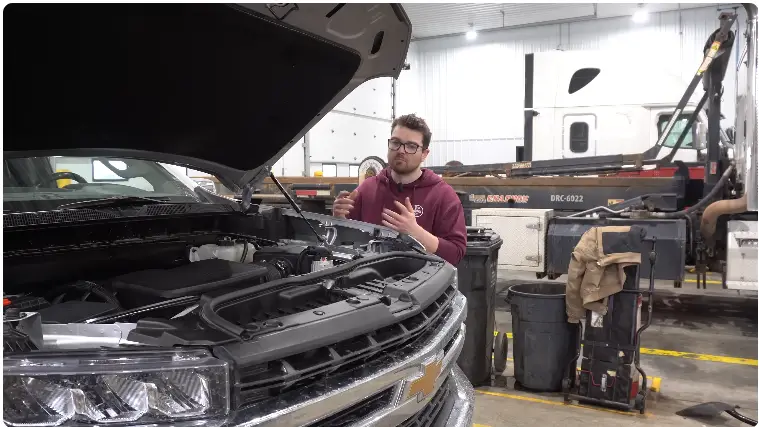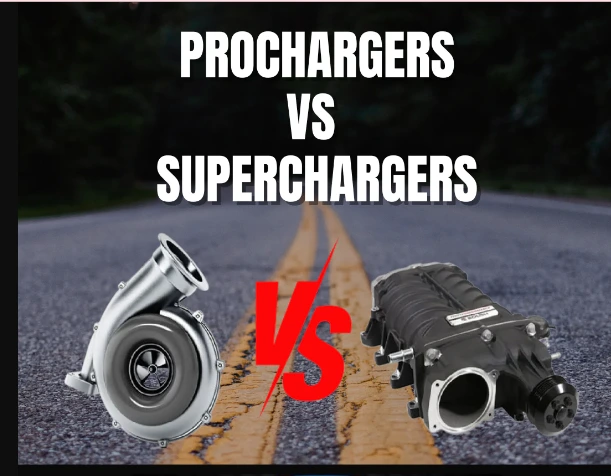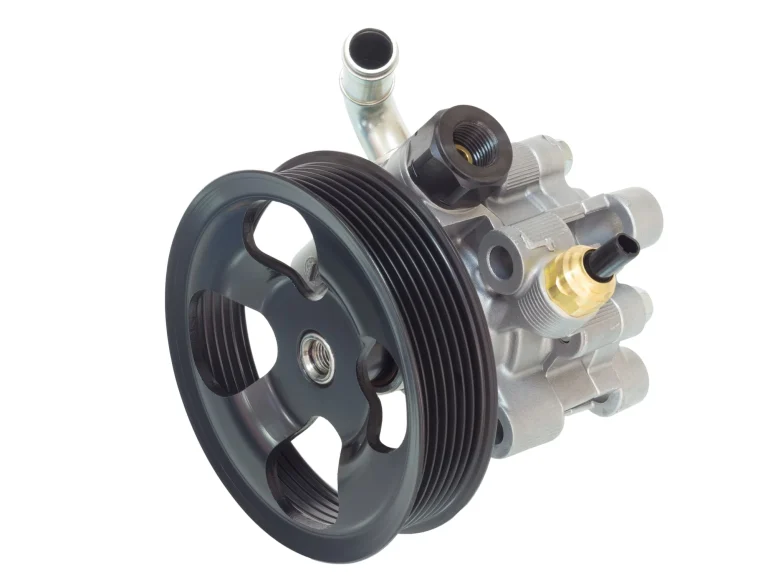7 Most Common Chevy 6.0 Engine Problems: Unveiling the Pitfalls
The 7 most common chevy 6.0 engine problems include issues with the lifter, fuel injectors, oil consumption, camshaft sensor, oil pressure, catalytic converter, and exhaust manifold. These problems can cause decreased performance and reliability of the engine, leading to potential breakdowns and costly repairs.
Chevy 6. 0 engine owners often face various issues that can hinder their vehicle’s performance and reliability. From problems with the lifter and fuel injectors to issues related to oil consumption and camshaft sensors, it’s important to be aware of these common problems to address them promptly.
When left unresolved, these engine issues can result in reduced power, increased fuel consumption, and even complete engine failure. This article will delve into the 7 most common chevy 6. 0 engine problems, providing valuable insights and recommendations to help ensure a smoother driving experience and prevent costly repairs down the line.
Head Gasket Failures: A Common Culprit
Chevy 6. 0 engines are renowned for their power and reliability. However, even the most robust engines can encounter problems from time to time. One of the most common issues that chevy 6. 0 engines face is head gasket failures.
These failures can be frustrating and costly, but with the right knowledge, you can be prepared to address them if they arise. In this section, we will explore the causes and symptoms of head gasket failures, the impact they have on engine performance, and the potential damage and repair options available.
Causes And Symptoms Of Head Gasket Failures:
- Overheating: Excessive heat can cause the head gasket to fail, resulting in coolant leaks and compromised engine performance.
- Cylinder pressure: A sudden increase in cylinder pressure, often caused by detonation or pre-ignition, can lead to head gasket failure.
- Age and wear: Over time, the head gasket can deteriorate and lose its ability to create a tight seal, resulting in failure.
- Symptoms: Look out for white smoke from the exhaust, coolant mixing with oil, low coolant levels, overheating, and loss of power or misfires.
Impact On Engine Performance:
- Decreased compression: A failed head gasket can lead to decreased compression in the affected cylinders, resulting in reduced power and performance.
- Coolant leaks: Head gasket failures often result in coolant leaks, leading to overheating and potential engine damage if not addressed promptly.
- Oil contamination: When the head gasket fails, coolant can mix with oil, compromising lubrication and causing engine damage.
Potential Damage And Repair Options:
- Further engine damage: If a head gasket failure is left unattended, it can lead to more significant engine damage, such as warped cylinder heads, damaged pistons, or a cracked engine block.
- Repair options: Depending on the severity of the head gasket failure, repair options can range from replacing the gasket itself to more extensive repairs, such as machining the cylinder head surface or engine block.
It is essential to address head gasket failures promptly to prevent further damage to your chevy 6. 0 engine. Consulting with a professional mechanic is recommended to accurately diagnose the issue and determine the most suitable repair options. By understanding the causes and symptoms of head gasket failures, as well as their impact on engine performance, you can take proactive measures to keep your chevy 6.
0 engine running smoothly and reliably.
Oil Consumption Issues: Addressing The Warning Signs
Excessive oil consumption can be a frustrating problem for chevy 6. 0 engine owners. Not only does it mean constantly monitoring and refilling your oil levels, but it can also have detrimental effects on your engine’s efficiency and longevity. In this section, we will explore the signs of excessive oil consumption, the effects it can have on your engine, and the diagnostic tests and solutions available to address this issue.
Signs Of Excessive Oil Consumption:
- Frequent need to top up oil levels: If you find yourself having to add oil to your chevy 6.0 engine more frequently than recommended, it could be a sign of excessive oil consumption.
- Blue smoke from the exhaust: One of the most telltale signs of oil consumption is the presence of blue smoke coming out of your exhaust. This occurs when oil is burned along with fuel during the combustion process.
- Oil leaks: Keep an eye out for any oil leaks around your engine or on the ground where you park. Excessive oil consumption can sometimes cause leaks, which can lead to further engine damage if not addressed promptly.
Effects On Engine Efficiency And Longevity:
- Reduced fuel efficiency: Excessive oil consumption can lead to inefficient combustion, which in turn results in reduced fuel efficiency. This means you’ll find yourself spending more on fuel than necessary.
- Increased emissions: Burning oil along with fuel can also increase the emissions produced by your chevy 6.0 engine. This is not only harmful to the environment but can also result in poor performance and potential issues with passing emissions tests.
- Engine damage: Over time, excessive oil consumption can lead to engine damage, as insufficient lubrication can cause increased friction and wear on critical engine components. This can significantly reduce your engine’s lifespan and result in costly repairs.
Diagnostic Tests And Solutions:
- Compression test: A compression test can help determine if excessive oil consumption is due to worn piston rings or cylinder walls. Low compression readings can indicate the need for engine repairs or a rebuild.
- Leak-down test: This test involves pressurizing the combustion chamber to check for any leaks in the valves, piston rings, or head gasket. Identifying the source of the leak can guide the necessary repairs.
- Pcv (positive crankcase ventilation) system check: A malfunctioning pcv system can contribute to oil consumption. Ensuring that the pcv valve and associated hoses are functioning correctly can alleviate the issue.
- Regular oil changes: Keeping up with regular oil changes, using the recommended oil type and viscosity, can help prevent excessive oil consumption. It’s important to follow the manufacturer’s guidelines for oil change intervals.
- Engine repairs or rebuild: In severe cases, where diagnostic tests reveal significant engine damage, repairs or a complete rebuild may be necessary to address the oil consumption issue.
Understanding the signs of excessive oil consumption, its effects on engine efficiency and longevity, and the diagnostic tests and solutions available is crucial for chevy 6. 0 engine owners. By identifying and addressing these issues promptly, you can ensure the optimal performance and longevity of your engine, saving you time, money, and the hassle of dealing with ongoing oil consumption problems.
Ignition System Problems: Troubles With Spark
Common Ignition System Issues
The ignition system plays a crucial role in the smooth functioning of your chevy 6. 0 engine. However, like any other component, it is prone to its fair share of problems. Here are some of the most common ignition system issues you may encounter:
- Faulty spark plugs: Over time, spark plugs can become worn out or develop carbon deposits, causing weak or inconsistent sparks. This can lead to misfires and poor engine performance.
- Ignition coil failure: The ignition coil is responsible for generating the high voltage required to create a spark at the spark plugs. If the coil fails, it can result in a weak or no spark, resulting in cylinder misfires or even engine stalling.
- Ignition control module malfunction: The ignition control module regulates the timing and duration of the spark. A malfunctioning module can disrupt the ignition timing, leading to engine hesitation, misfires, and decreased fuel efficiency.
- Cracked distributor cap: The distributor cap is a crucial part of the ignition system that distributes the high voltage from the coil to the spark plugs. A cracked or damaged distributor cap can cause electrical leaks, resulting in an inconsistent spark and engine performance issues.
- Ignition switch problems: The ignition switch is responsible for powering the ignition system and starting the engine. A faulty switch can result in intermittent starting issues, engine stalling, or even a complete failure to start.
Symptoms And Implications For Engine Performance
Identifying ignition system problems early on is crucial to prevent further damage to the engine and ensure optimal performance. Here are some symptoms that may indicate ignition system issues in your chevy 6. 0 engine:
- Engine misfires: Misfires occur when the combustion process doesn’t happen correctly in one or more cylinders. This can lead to rough idling, a lack of power, and poor overall engine performance.
- Difficulty starting the engine: If you experience difficulties starting your engine, such as extended cranking time or it fails to start altogether, it could be a sign of ignition system problems.
- Decreased fuel efficiency: Ignition system issues can cause incomplete combustion, resulting in a decrease in fuel efficiency. You may notice a drop in your mpg (miles per gallon) or frequent trips to the gas station.
- Engine stalling: A malfunctioning ignition system can cause the engine to stall while idling or driving, leading to potentially dangerous situations on the road.
- Poor acceleration: If you notice a lack of power or sluggish acceleration, it could be due to ignition system problems affecting the engine’s performance.
Steps To Diagnose And Resolve Problems
When you encounter ignition system issues with your chevy 6. 0 engine, here are some steps you can take to diagnose and resolve the problems:
- Inspect and replace spark plugs: Check the condition of your spark plugs and replace them if they are worn out or covered in carbon deposits. Ensure you use the recommended spark plug type and gap for your chevy engine model.
- Test the ignition coil: Use a multimeter to check the resistance and continuity of the ignition coil. If the readings are outside the specified range, consider replacing the coil.
- Check the ignition control module: Test the module using an appropriate diagnostic tool or consult a professional mechanic to ensure it is functioning correctly. Replace if necessary.
- Evaluate the distributor cap: Inspect the distributor cap for any cracks or signs of damage. Replace it if needed.
- Verify the ignition switch: If you suspect a faulty ignition switch, consult a professional mechanic to diagnose and replace it, if necessary.
Remember, if you are unsure about diagnosing or resolving ignition system problems, it is always advisable to consult a trained mechanic who specializes in chevy engines. Taking proper care of your ignition system will help keep your chevy 6. 0 engine running smoothly and efficiently.
Coolant Leaks: Identifying The Telltale Signs
A healthy cooling system is vital for the optimal performance of your chevy 6. 0 engine. Coolant leaks can occur for various reasons and can lead to serious engine issues if left unaddressed. In this section, we will explore the key indicators of coolant leaks, the consequences for engine health, and the repair options and preventative measures you can take to maintain your engine’s reliability.
Key Indicators Of Coolant Leaks
Identifying coolant leaks early on is crucial to prevent further damage to your engine. Here are some key signs that may indicate a coolant leak:
- Coolant puddles: You may notice puddles of bright-colored liquid (usually green or orange) beneath your vehicle when it is parked. These puddles can indicate a coolant leak and should not be ignored.
- Sweet smell: Coolant has a distinct sweet smell. If you notice this odor inside or outside your vehicle even when the engine has cooled down, it might be a sign of a coolant leak.
- Overheating engine: Coolant leaks can disrupt the engine’s cooling system, leading to overheating. If you notice your engine temperature gauge consistently rising or your vehicle frequently overheating, it’s essential to check for coolant leaks.
Consequences For Engine Health
Ignoring coolant leaks can have severe consequences for your engine’s health and performance. Here are some potential issues that can arise:
- Engine damage: Coolant leaks can cause the engine to overheat, resulting in damage to vital engine components like gaskets, pistons, and cylinder heads. If left unrepaired, it can lead to costly engine repairs or even engine failure.
- Poor fuel efficiency: A compromised cooling system can put extra strain on the engine, leading to decreased fuel efficiency. Addressing coolant leaks promptly can help maintain optimal fuel consumption.
- Increased emissions: A faulty cooling system can impact the engine’s combustion process, leading to higher emissions. Regular maintenance and timely repairs can help keep your vehicle eco-friendly.
Repair Options And Preventative Measures
Once you’ve identified a coolant leak, it’s essential to take immediate action to restore your engine’s health. Here are some repair options and preventative measures to consider:
- Professional inspection: If you’re unsure about the source or extent of the coolant leak, it’s best to take your vehicle to a trusted mechanic for a thorough inspection. They can identify the precise location of the leak and recommend necessary repairs.
- Sealants: In some cases, minor coolant leaks can be temporarily addressed using sealants. However, this is a temporary solution and should be followed up with permanent repairs.
- Component replacement: Depending on the severity of the coolant leak and the damaged components, your mechanic may recommend replacing parts such as hoses, gaskets, or the radiator.
- Regular maintenance: Preventative measures like routine cooling system inspections, regular coolant flushes, and maintenance checks can help identify and address small leaks before they become major issues. Follow your vehicle manufacturer’s maintenance schedule for optimal performance.
Remember, prompt action is essential when dealing with coolant leaks to protect your chevy 6. 0 engine from potential long-term damage. Regular maintenance and attentive monitoring can go a long way in ensuring the reliability and longevity of your vehicle’s engine.
Cylinder Misfires: Unleashing The Power Of Diagnosis
Cylinder misfires in chevy 6. 0 engines can be a frustrating issue for vehicle owners. These misfires occur when one or more cylinders fail to ignite properly, leading to a loss of power and performance. In this section, we will delve into the understanding of cylinder misfires, the symptoms and causes, as well as the diagnostic techniques and corrective actions to address this common problem.
So let’s dive right in!
Understanding Cylinder Misfires
- Cylinder misfires refer to the failure of the combustion process in one or more cylinders of the engine.
- They can occur due to various reasons, such as an inadequate fuel supply, lack of spark, or improper air-fuel mixture.
- Cylinder misfires not only result in reduced power and performance but can also cause further damage to the engine if left unaddressed.
Symptoms And Causes
Common symptoms of cylinder misfires include:
- Engine misfires, which are felt as hesitation, stumbling, or jerking during acceleration or at idle.
- Reduced power and performance, often accompanied by a decrease in fuel efficiency.
- Rough idle and vibrations felt throughout the vehicle.
- Illuminated check engine light.
The causes of cylinder misfires can vary and may include:
- Faulty spark plugs or ignition coils, which can lead to a weak or no spark in the cylinder.
- Clogged fuel injectors that disrupt the proper fuel supply to the cylinders.
- Vacuum leaks, which can result in an abnormal air-fuel mixture.
- Engine mechanical issues, such as low compression or a worn-out camshaft.
Identifying the underlying cause is crucial to resolving the cylinder misfires effectively.
Diagnostic Techniques And Corrective Actions
To diagnose and address cylinder misfires, the following techniques and actions are recommended:
- Utilize an obd-ii scanner to retrieve diagnostic trouble codes (dtcs) stored in the vehicle’s computer system. These codes provide valuable information about the specific cylinders experiencing misfires.
- Perform a thorough visual inspection of the ignition system components, such as spark plugs, ignition coils, and wiring connections. Replace any faulty components as necessary.
- Check the fuel injectors for clogging or malfunctioning. Cleaning or replacing them may be required.
- Conduct a compression test to assess the engine’s internal condition. Low compression in a cylinder could indicate mechanical issues that need to be addressed.
- Inspect the intake manifold and vacuum lines for leaks. Fixing any leaks can restore the proper air-fuel mixture and improve engine performance.
Once the root cause of the cylinder misfires is identified, the appropriate corrective actions can be taken to resolve the issue and restore the engine’s optimal performance.
Cylinder misfires can be a frustrating problem in chevy 6. 0 engines, but by understanding their causes, recognizing the symptoms, and employing diagnostic techniques, vehicle owners can effectively address these issues. By promptly addressing cylinder misfires, you can ensure your chevy 6.
0 engine continues to run smoothly and efficiently, providing you with a reliable and satisfying driving experience.
Fuel System Troubles: Navigating The Performance Issues
If you own a chevy with a 6. 0 engine, you may come across some fuel system problems at some point. Whether you’re experiencing rough idling, difficulty starting your vehicle, or decreased fuel efficiency, it’s essential to understand the common issues that can arise with this engine’s fuel system.
In this section, we’ll explore the most frequent fuel system problems, their symptoms and impacts, as well as remedies and maintenance tips to help you tackle these issues effectively.
Common Fuel System Problems:
- Fuel pump failure: The fuel pump is responsible for delivering gasoline from the tank to the engine. Over time, it can wear out or become damaged, resulting in inadequate fuel supply and poor engine performance.
- Clogged fuel injectors: Fuel injectors play a crucial role in providing the right amount of fuel to the engine. However, they can become clogged with dirt, debris, or deposits over time, leading to uneven fuel distribution and engine misfires.
- Faulty fuel pressure regulator: The fuel pressure regulator ensures that the proper amount of fuel is delivered to the engine. A malfunctioning regulator can cause excessive or insufficient fuel pressure, resulting in engine performance issues.
- Dirty or contaminated fuel filter: The fuel filter prevents dirt, rust, and other impurities from reaching the engine. Over time, the filter can become clogged, restricting fuel flow and causing engine problems.
Symptom Manifestation And Impact:
- Hard starting: Difficulty starting the engine, especially after the vehicle has been sitting for a while, can indicate fuel system problems. This may be caused by a worn-out fuel pump, clogged fuel injectors, or insufficient fuel pressure.
- Rough idling: If your engine is not running smoothly at idle or vibrates excessively, it could be due to clogged fuel injectors or a faulty fuel pressure regulator affecting the fuel-air mixture.
- Decreased fuel efficiency: Fuel system issues can lead to poor fuel economy. If you notice a sudden drop in mileage or find yourself visiting the gas station more frequently, it may be time to inspect your fuel pump, injectors, and filter.
- Engine misfires: Clogged fuel injectors or insufficient fuel pressure can cause the engine to misfire or hesitate during acceleration, resulting in a loss of power and reduced performance.
Remedies And Maintenance Tips:
- Regular fuel system maintenance: Make sure to follow the recommended maintenance schedule for your vehicle, including fuel filter replacement and fuel injector cleaning. This will help prevent major fuel system problems and keep your engine running smoothly.
- Fuel quality: Always use high-quality fuel to minimize the risk of debris or contaminants entering your fuel system. Regularly inspect your fuel filter for any signs of clogging and replace it if necessary.
- Professional diagnosis: If you encounter persistent fuel system issues, it’s crucial to seek professional help. Skilled mechanics can diagnose and address the underlying problems efficiently, saving you time and money.
- Fuel system cleaners: Consider using fuel system cleaners periodically to remove deposits and keep your fuel injectors clean. This can enhance fuel efficiency and maintain optimal engine performance.
By familiarizing yourself with the common fuel system problems, their symptoms, and the necessary remedies and maintenance tips, you’ll be better equipped to tackle these issues head-on. Remember, early detection and proper maintenance can go a long way in ensuring the smooth operation of your chevy 6.
0 engine.
Conclusion: Staying Ahead Of Chevy 6.0 Engine Problems
Staying Ahead Of Chevy 6.0 Engine Problems
———————————–
Maintaining the optimal performance of your chevy 6. 0 engine requires staying vigilant and addressing any potential problems promptly. By understanding the importance of regular maintenance and being aware of the most common engine issues, you can ensure that your vehicle runs smoothly for years to come.
Let’s recap the seven most common chevy 6. 0 engine problems and discuss the significance of addressing these issues promptly.
Importance Of Regular Maintenance
Regular maintenance plays a crucial role in keeping your chevy 6. 0 engine in good shape. By following these key practices, you can prevent many potential problems:
- Routine oil changes: Regularly changing the engine oil ensures proper lubrication and reduces the risk of engine damage.
- Scheduled filter replacements: Replacing filters, such as air filters and fuel filters, helps maintain the engine’s efficiency and prevent contaminants from causing issues.
- Inspecting and maintaining belts and hoses: Regularly checking the condition of belts and hoses, and replacing them when necessary, can prevent breakdowns and other engine problems.
- Keeping coolant levels in check: Adequate coolant levels prevent overheating and safeguard against potential engine damage.
- Checking and maintaining spark plugs: Faulty spark plugs can lead to misfires and reduced engine performance, so regular inspection and replacement are essential.
- Tirelessly monitoring fluid levels: Regularly checking the levels of fluids like transmission fluid, brake fluid, and power steering fluid helps identify issues early on and prevent further damage.
- Complying with recommended service intervals: Following the maintenance schedule recommended by the manufacturer ensures that your engine gets the care it needs.
Recap Of The 7 Most Common Problems
To ensure that your chevy 6. 0 engine operates at its best, it’s crucial to be aware of these common issues:
- Oil consumption: Some chevy 6.0 engines are prone to excessive oil consumption, which can lead to engine damage if not addressed promptly.
- Coolant leaks: Leaking coolant can cause engine overheating, resulting in potential damage to various engine components.
- Timing chain wear: The timing chain can wear down over time, leading to engine misfires and decreased performance.
- Faulty fuel injectors: Defective fuel injectors can cause misfires, reduced fuel efficiency, and engine performance issues.
- Cylinder head gasket failure: A blown cylinder head gasket can result in coolant leaks and poor engine performance.
- Exhaust manifold cracks: Cracks in the exhaust manifold can cause noise, reduced engine power, and potential damage to other engine parts.
- Faulty throttle body: An unreliable throttle body can cause engine hesitation, rough idling, and reduced throttle response.
Encouragement To Address Issues Promptly For Optimal Engine Performance
Addressing engine issues promptly is vital for maintaining optimal performance and avoiding costly repairs down the road. By taking swift action when you notice any signs of trouble, you can save yourself from further engine damage and ensure that your chevy 6.
0 engine runs smoothly for years to come. Remember the following:
- Pay attention to warning signs: Keep an ear out for strange noises, monitor fluid levels, and watch for any dashboard warning lights indicating potential issues.
- Listen to your engine: If you notice any changes in engine performance, such as rough idling or decreased power, consult a professional mechanic to diagnose and address the problem promptly.
- Don’t procrastinate: Ignoring engine problems or delaying necessary repairs can lead to further damage and more expensive repairs in the long run.
- Regular inspections: Schedule regular check-ups and inspections with a qualified mechanic to catch any underlying issues before they escalate.
By staying proactive, addressing problems promptly, and following a regular maintenance routine, you can keep your chevy 6. 0 engine running smoothly and efficiently for many miles to come.
Conclusion
To sum up, understanding the common problems that can arise with the chevy 6. 0 engine is crucial for any chevy owner or enthusiast. From issues with oil consumption and leaking gaskets to faulty camshaft sensors and fuel pump failures, being aware of these problems can save you time, money, and frustration.
Regular maintenance and timely repairs are key to keeping your chevy 6. 0 engine running smoothly. Remember to pay attention to warning signs, such as unusual noises or a decrease in performance, and address them promptly. By staying proactive and taking care of your engine, you can ensure that your chevy 6.
0 will deliver the power and performance it’s known for. So, stay informed, stay vigilant, and enjoy the ride!





